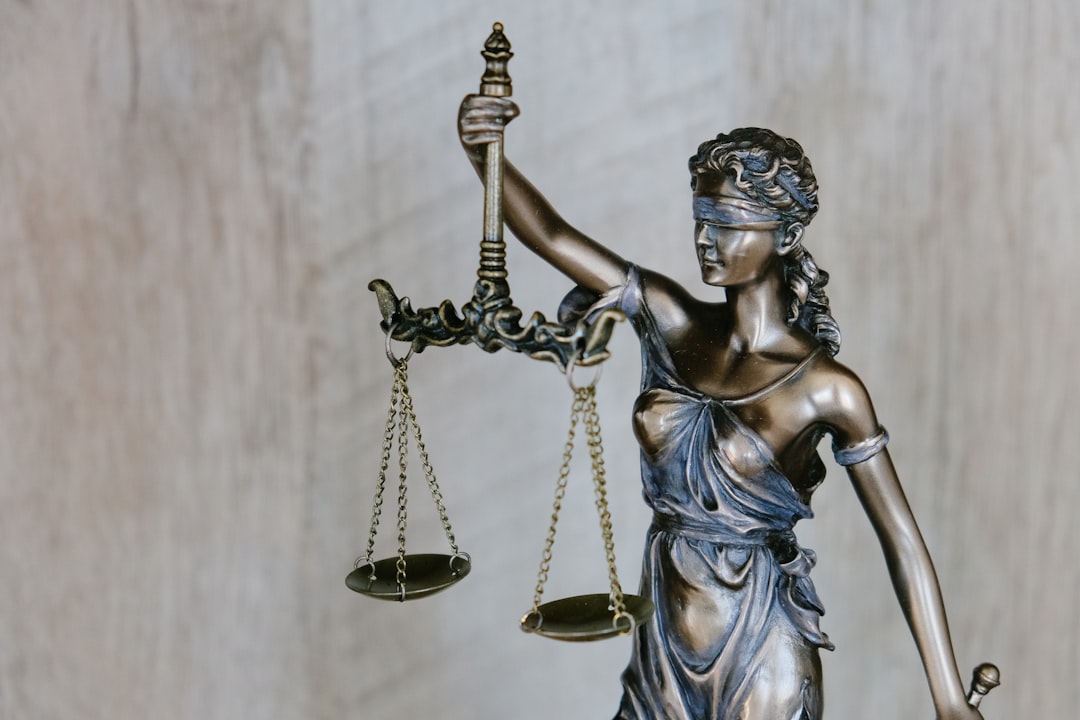DNA evidence is a crucial element in prosecuting sexual abuse cases in Georgia, with qualified sexual abuse attorneys navigating its legal implications. Properly handled DNA can link or exonerate defendants, ensuring fair trials where consent is a central issue. Georgia's attorneys emphasize the importance of strict protocols for collecting and storing biological samples to maintain DNA's evidentiary value. Advanced technology promises an even more effective future for DNA testing in these cases, aiding survivors and enhancing prosecutions.
In Lumber City, as across the nation, DNA evidence plays a pivotal role in sexual abuse cases. This powerful tool not only enhances accuracy but also offers closure for survivors. The article delves into the intricate legal implications of DNA evidence, exploring its crucial role in prosecutions and the expertise required from sexual abuse attorneys to navigate complex terrain. From collection and admissibility standards to real-world case studies in Georgia, we examine strategies that have led to successful outcomes, while also looking ahead at potential enhancements for justice.
Understanding DNA Evidence: A Cornerstone in Sexual Abuse Prosecutions

DNA evidence has become a cornerstone in sexual abuse prosecutions, providing irrefutable proof and offering a powerful tool for justice. In Lumber City, as in many jurisdictions across Georgia, the legal implications of DNA evidence are profound, especially for sexual abuse cases. A sexual abuse attorney in Georgia understands that this scientific data can either exonerate or convict individuals, making its handling and interpretation critical.
When properly collected and analyzed, DNA evidence can link a defendant to the crime scene or establish the absence of their genetic material, thereby clearing innocent parties. In sexual abuse cases, where consent is often a central issue, DNA analysis can conclusively demonstrate the presence or absence of biological materials, providing definitive answers and ensuring fair trials.
The Role of a Sexual Abuse Attorney: Navigating Complex Legal Terrain

In cases involving sexual abuse, a sexual abuse attorney in Georgia plays a pivotal role in navigating the complex legal terrain. These specialists are adept at interpreting and presenting DNA evidence, which is often crucial for proving or disproving allegations. They understand the intricate procedures surrounding collection, storage, and analysis of such evidence to ensure its admissibility in court.
A sexual abuse attorney also guides clients through the emotional and psychological aspects of these cases, offering support and advocacy. They help victims understand their legal rights and options, ensuring they receive the justice they deserve. Their expertise lies in translating scientific data into compelling legal arguments, ultimately advocating for a fair outcome in court.
Collection and Admissibility: Ensuring Integrity in DNA Testing Procedures

In sexual abuse cases, the collection and admissibility of DNA evidence are paramount to securing justice. The process begins with meticulous handling of biological samples to preserve their integrity. Sexual abuse attorneys in Georgia often emphasize the importance of proper collection techniques to avoid contamination or mishandling, which could compromise the evidence’s admissibility in court. Law enforcement agencies and medical professionals must adhere to strict protocols to ensure the accuracy and reliability of DNA testing.
Admissibility requirements vary by jurisdiction, but generally, DNA evidence is powerful due to its unique genetic signatures. A sexual abuse attorney in Georgia will argue for its admissibility based on scientific principles and established case law. The integrity of the collection process is crucial to maintain the evidentiary value of DNA tests, ensuring that justice is served and the rights of all parties are protected within the legal framework.
Case Studies: Success Stories and Lessons Learned in Georgia Courts

In Georgia courts, DNA evidence has proven invaluable in sexual abuse cases, leading to both success stories and lessons learned. One notable case involved a sexual abuse attorney in Atlanta who successfully argued for the admission of DNA evidence from a victim’s clothing, resulting in a conviction despite the passage of time since the assault. This victory highlights the power of preserving and testing such evidence, even years later, as it can provide irrefutable proof beyond reasonable doubt.
The experience in Georgia courts underscores the importance of proper collection, storage, and handling of DNA samples in sexual abuse cases. Attorneys and law enforcement agencies must work together to ensure that evidence is collected under strict protocols, preserving its integrity. By doing so, sexual abuse attorneys can effectively utilize DNA evidence to secure justice for their clients, strengthen legal arguments, and ultimately contribute to a more robust system of protection against sexual violence.
Future Prospects: Enhancing DNA Evidence Utilization for Justice

The future of DNA evidence in sexual abuse cases looks promising, offering a powerful tool for justice in Lumber City and beyond. As technology advances, the accuracy and accessibility of DNA testing are improving, making it an invaluable asset for sexual abuse attorneys in Georgia. With its ability to provide definitive results, DNA evidence can help identify perpetrators, exonerate the innocent, and bring closure to survivors.
Enhanced data sharing between law enforcement agencies and improved storage methods will further revolutionize DNA evidence utilization. This collaborative approach could lead to more successful prosecutions and a better understanding of patterns in sexual abuse cases. For victims, this advancement means increased chances of seeing their assailants brought to justice, ensuring that the cycle of violence is broken and a sense of safety is restored.





